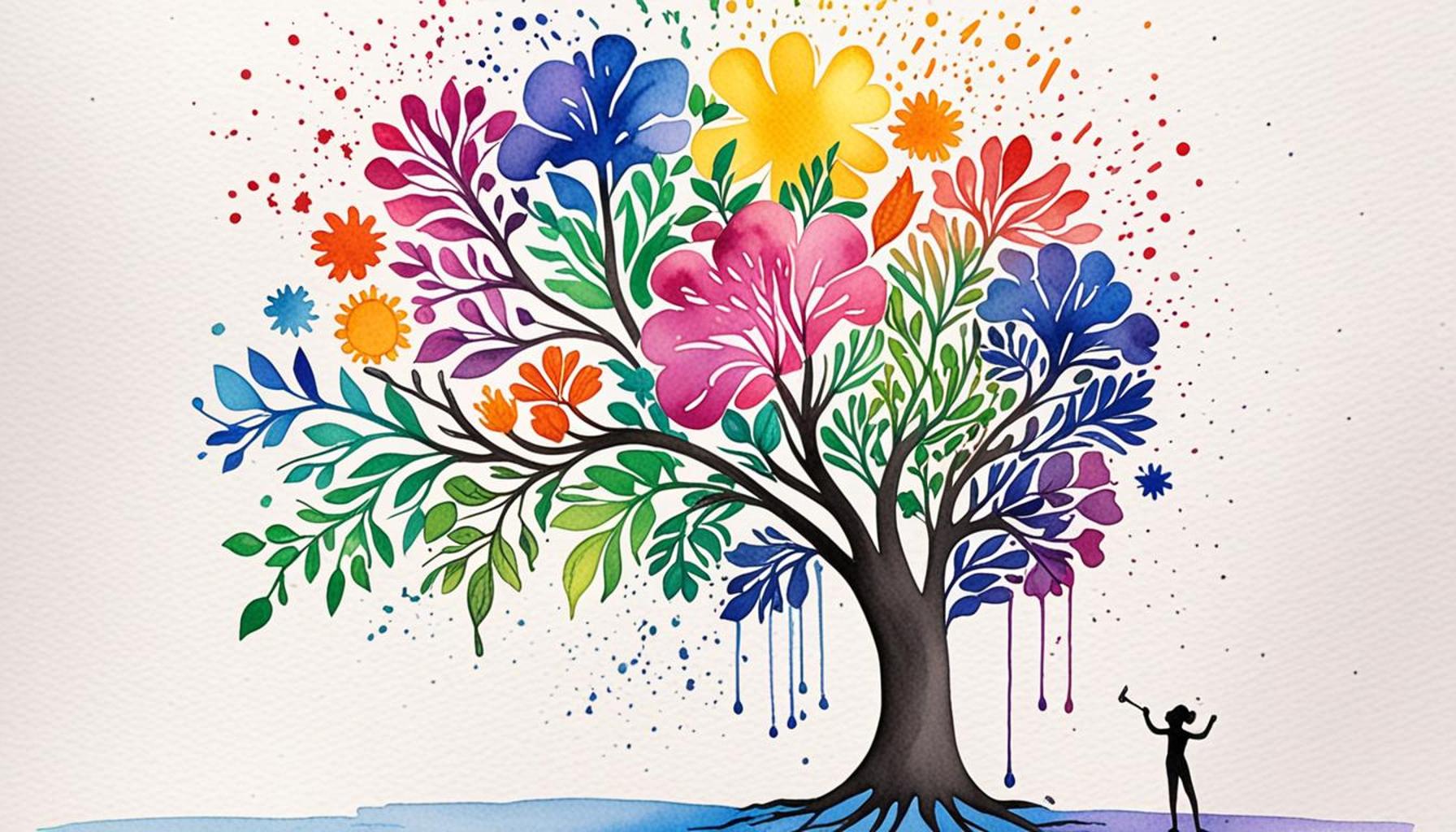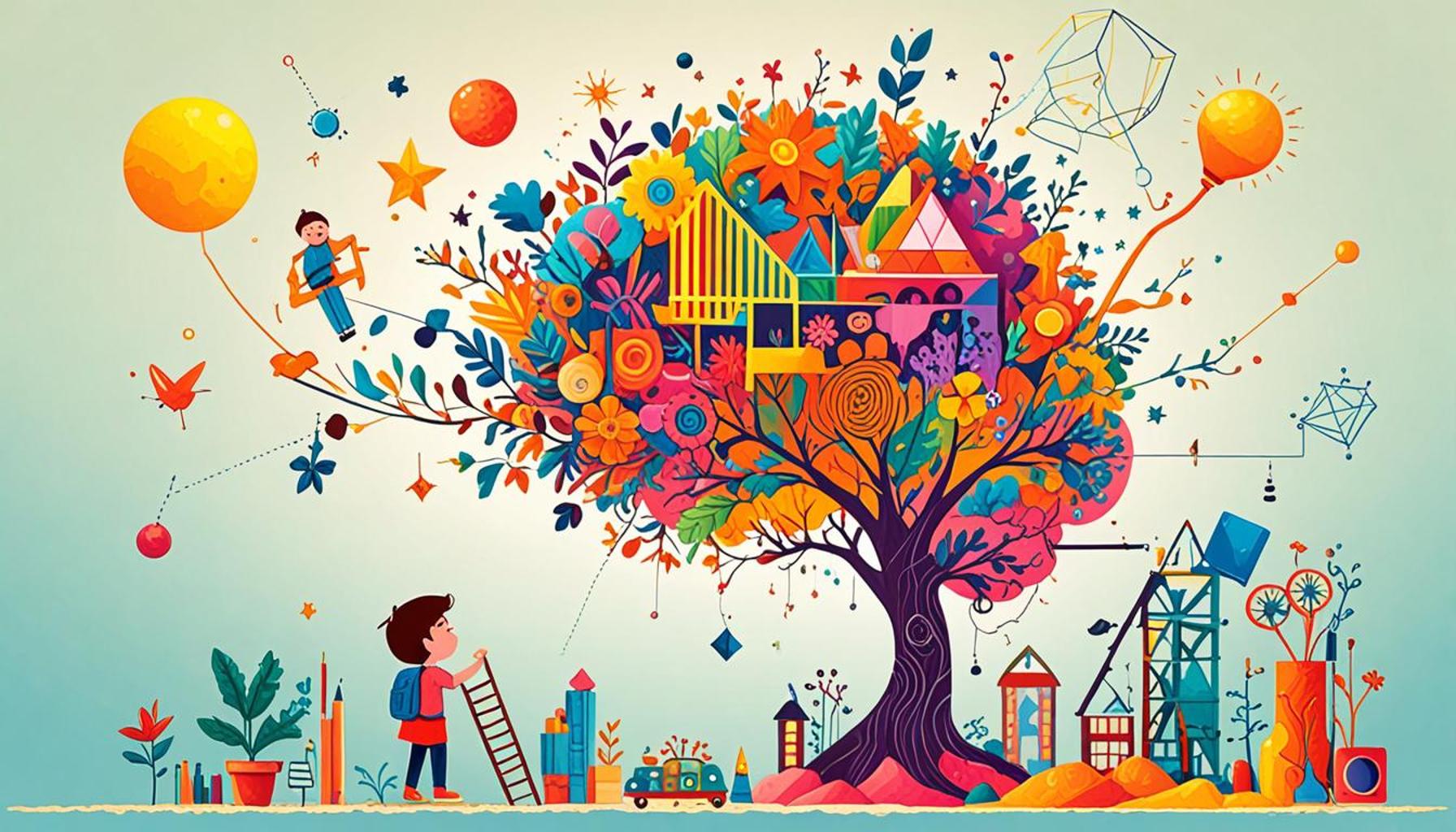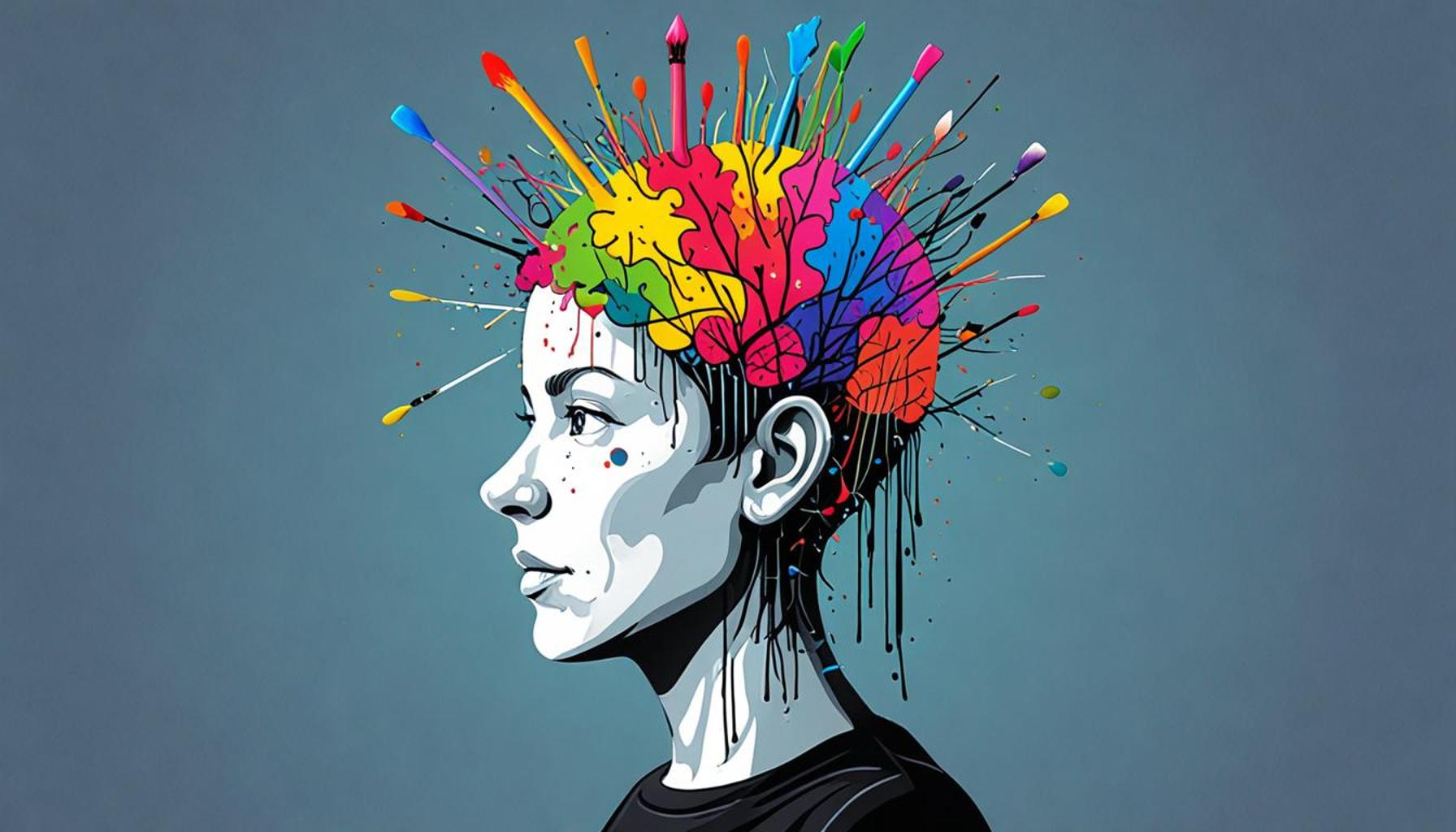The Importance of Learning Strategies in Developing a Growth Mindset
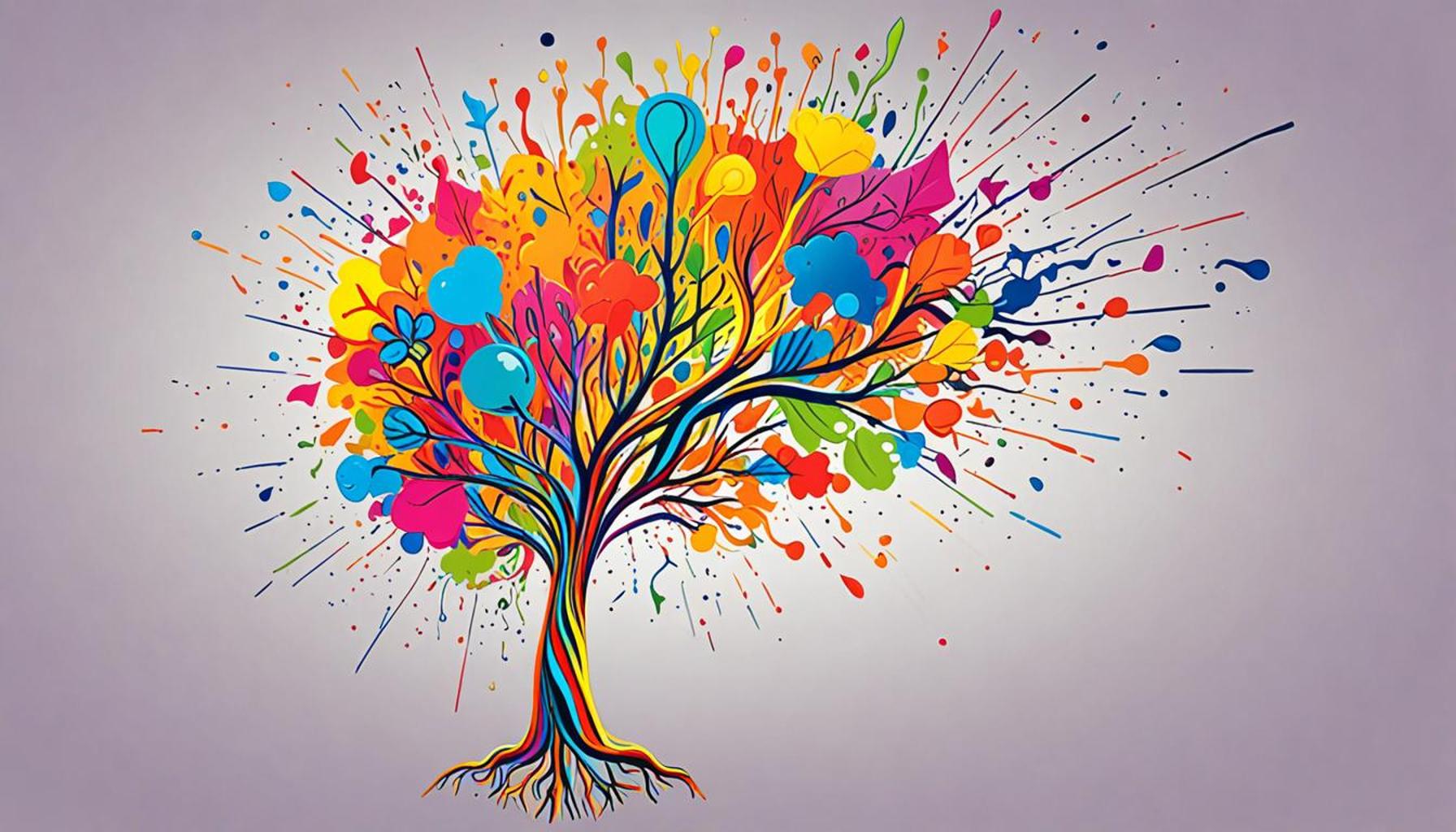
Understanding Growth Mindset Through Learning Strategies
In a rapidly changing world, the ability to adapt and grow is more crucial than ever. This is where learning strategies come into play, acting as essential tools in cultivating a growth mindset. By implementing effective learning approaches, individuals can enhance their capacity to embrace challenges and persist in the face of setbacks.
Consider the following reasons why learning strategies are vital:
- Promote Resilience: Effective learning strategies help individuals bounce back from failures, fostering the belief that abilities can be developed. For instance, students in Nigeria often face numerous educational hurdles, including inadequate resources and large class sizes. Utilizing learning strategies such as peer study groups or community learning hubs can help them recover from academic setbacks and build the resilience necessary to succeed in their studies.
- Enhance Problem-Solving: Using diverse learning techniques encourages creative thinking and the ability to tackle complex problems. In Nigeria, where entrepreneurship is on the rise, learners can benefit from strategies that enhance critical thinking. For example, scenario-based learning or case studies can provide practical insights into real-world challenges faced by business owners, enabling learners to devise innovative solutions.
- Boost Motivation: Strategies such as goal-setting and self-reflection keep learners engaged and motivated over time. A robust method employed by students is SMART goal setting—where they create Specific, Measurable, Achievable, Relevant, and Time-bound goals. In a country with a youthful population like Nigeria, this approach can significantly increase their determination to achieve academic and personal milestones.
In Nigeria, where the education landscape is diverse and challenging, understanding how to leverage learning strategies can make a significant difference. The integration of technology and the increasing accessibility of online learning platforms have empowered individuals to transform their educational experiences. For instance, platforms like uLesson and edX offer tailored learning resources that resonate with local contexts, providing students with the tools needed to harness a growth mindset effectively.
As we delve deeper into the importance of these strategies, we will explore specific approaches that can facilitate growth, turning obstacles into stepping stones for success. Using educational workshops, mentorship programs, and peer collaborations are just some examples of how learning strategies can reshape attitudes towards learning in Nigeria. Are you ready to discover how these techniques can revolutionize your mindset and educational journey?
CHECK OUT: Click here to explore more
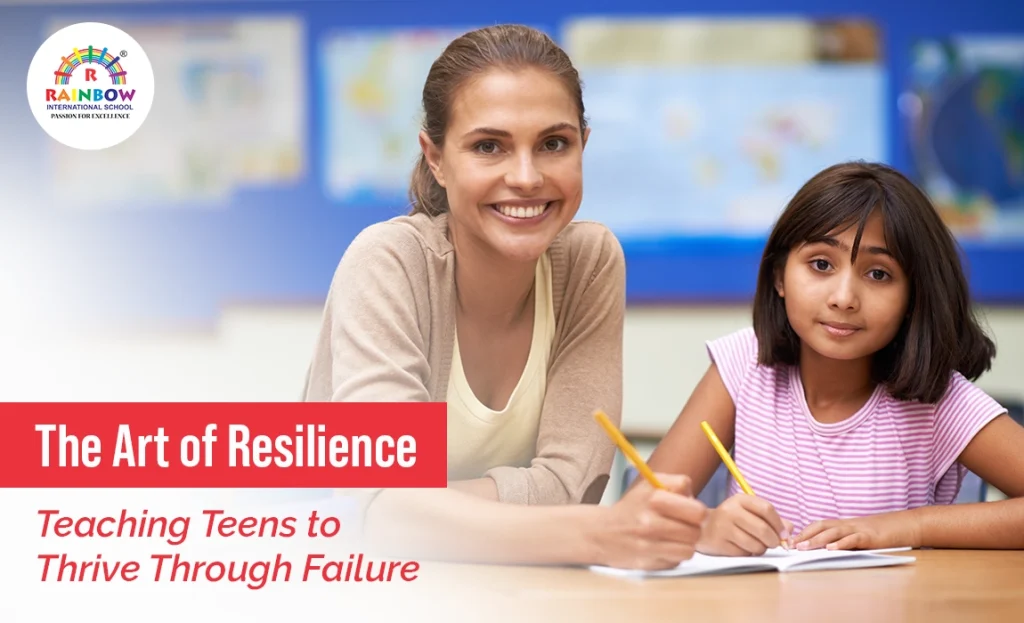
Leveraging Learning Strategies for Effective Growth
To foster a growth mindset, it is essential to recognize that learning strategies are not merely tools for academic performance; they are vital components that shape an individual’s approach to personal and professional growth. The integration of these strategies into everyday learning can empower individuals to see failure not as an endpoint, but as an opportunity for improvement and engagement.
One of the most effective ways to enhance learning is through the use of active learning strategies. This approach encourages learners to actively participate in the learning process rather than passively absorbing information. In Nigeria, where educational systems can vary significantly, active learning methods have proved instrumental in bridging learning gaps. Techniques such as group discussions, role-playing, and interactive projects stimulate cognitive engagement and amplify retention rates. For instance, schools in urban areas are increasingly leveraging collaborative models, allowing students to tackle real-world problems in a team setting. This not only enhances critical thinking but also fosters a sense of community and shared responsibility among learners.
Furthermore, the application of metacognitive strategies—reflecting on one’s own learning processes—plays an integral role in promoting a growth mindset. This includes planning how to approach learning tasks, monitoring comprehension while learning, and evaluating the effectiveness of different strategies. By teaching students in Nigeria to self-assess and adapt their learning tactics based on their experiences, educators can instill a mindset of continuous improvement. For example, students encouraged to keep learning journals where they reflect on what worked well and what challenges they faced can gain valuable insights into their own learning patterns.
- Collaborative Learning: Engaging with peers allows learners to absorb diverse perspectives and strengthen their understanding through discussion and debate. This model not only fosters a sense of belonging but also encourages shared learning, enhancing group dynamics in classrooms across Nigeria.
- Feedback Loops: Constructive feedback is essential for growth. When learners receive regular evaluations from educators or peers, they become more aware of their progress and areas needing improvement. This promotes resilience as they learn that feedback is a tool for development rather than criticism.
- Flexible Learning Environments: Adapting learning spaces to accommodate different styles can drastically improve engagement. Whether through interactive classrooms or online platforms, providing multiple avenues to learn can cater to diverse student needs and support a growth-focused atmosphere.
As these learning strategies become more integrated into the educational framework in Nigeria, learners will not only enhance their academic performance but also develop critical life skills necessary for navigating an increasingly complex world. The real challenge lies not merely in implementing these strategies, but in ensuring that they resonate with the local context and empower learners to take ownership of their educational journeys.
As we explore the broader implications of these learning approaches, it becomes evident that fostering a growth mindset through effective strategies can empower individuals from all walks of life to thrive amidst challenges. By investing in learning strategies, we are essentially investing in a future where resilience, creativity, and continuous learning become the norm, paving the way for success in various domains.
The Role of Learning Strategies in Fostering a Growth Mindset
Learning strategies play a pivotal role in the journey towards developing a growth mindset. They enable individuals to approach challenges with resilience and curiosity, transforming the perception of failure into an opportunity for growth. One of the primary strategies is metacognitive awareness, which involves understanding one’s own learning processes. By evaluating their strengths and weaknesses, learners can tailor their approaches to overcome obstacles effectively. Another essential strategy is goal setting, which provides a roadmap for achieving new skills and concepts. By breaking down larger goals into manageable tasks, individuals generate a sense of accomplishment that fuels further progress. Furthermore, utilizing self-regulated learning techniques encourages learners to take charge of their educational journey, fostering independence and confidence. Research supports the notion that the implementation of diverse learning strategies can significantly enhance a learner’s emotional resilience. For example, learners who adopt collaborative learning techniques not only benefit from shared insights but also cultivate empathy and communication skills. These cooperative environments reinforce a positive feedback loop, where peer support uplifts motivation. Moreover, actively engaging with reflective practices, such as journaling or discussing experiences, further cements the learning process. This reflection allows for deeper understanding and retention of information while highlighting areas where growth is necessary. By integrating various learning strategies into their routine, individuals are not just acquiring knowledge but are also reinforcing their growth mindset, making them well-equipped to tackle future challenges with confidence and skill. As learners begin to embrace these techniques, they set forth on a transformative path that will ultimately contribute to lifelong success and adaptability in an ever-changing world.
| Learning Strategy | Advantages |
|---|---|
| Metacognitive Awareness | Enables tailored learning approaches and proactive overcoming of obstacles. |
| Goal Setting | Provides clarity, focus, and a sense of accomplishment. |
| Collaborative Learning | Enhances peer support, motivation, and essential communication skills. |
| Reflective Practices | Deepens understanding, retention, and identifies areas for growth. |
Understanding these strategies not only paves the way for personal development but also creates an overall culture of growth, especially within educational settings. By prioritizing and mastering learning strategies, learners position themselves towards success and resilience in a constantly evolving landscape.
SEE ALSO: Click here to read another article
Building Resilience through Diverse Learning Approaches
To cultivate a robust growth mindset, embracing a variety of learning strategies can significantly contribute to resilience, adaptability, and a willingness to take on challenges. In Nigeria, where students often face unique educational barriers, employing diverse strategies tailored to specific cultural contexts is key to overcoming these obstacles. For instance, integrating storytelling methods into the learning framework can resonate deeply with Nigerian students who have rich traditions of oral histories. By encouraging learners to craft and share personal stories related to their academic experiences, educators can enhance engagement and create a profound connection between lessons learned and lived realities.
Additionally, problem-based learning can serve as an invaluable strategy for developing critical thinking skills and reinforcing a growth mindset. This approach encourages students to tackle complex, real-world issues collaboratively. In Nigerian classrooms, this could mean addressing local challenges such as environmental sustainability, public health, or economic development. When students work together on relevant projects, they not only learn important subject matter but also understand the value of resilience in problem-solving. By facing obstacles as a cohesive unit, learners grow accustomed to the idea that failure is a stepping stone—an essential aspect of nurturing a growth-focused perspective.
- Culturally Inclusive Curriculum: An inclusive curriculum can help learners feel valued and understood. By incorporating local contexts, languages, and histories into lesson plans, educators can create a more relatable learning environment that promotes enthusiasm and reduces anxiety in students, which ultimately leads to a more profound development of a growth mindset.
- Technology-Enhanced Learning: In recent years, the surge in the use of technology in education has provided new opportunities for learners to explore innovative methods. Online resources, educational apps, and collaborative platforms can facilitate personalized learning experiences. This flexibility allows students to learn at their own pace, reinforcing the idea that growth is a continuous journey.
- Mindfulness Practices: Incorporating mindfulness into learning strategies may help nurture emotional intelligence and self-awareness among students. By engaging in practices such as meditation, reflective journaling, or even simple breathing exercises, learners can develop healthier ways to cope with stress and setbacks, ultimately fostering a positive mindset towards challenges.
Through the implementation of these diverse strategies, learners in Nigeria can experience heightened levels of engagement and resilience, ultimately embracing the growth mindset. This holistic approach to education positions students not merely as passive recipients of information but as active participants in their own learning processes. The collaborative spirit imbued in these strategies lays the groundwork for future innovators, leaders, and change-makers, underlining the essential relationship between effective learning strategies and personal development.
Recognizing the direct link between learning strategies and a growth mindset is crucial in navigating the challenges faced by the Nigerian education system. As educators and stakeholders become increasingly attuned to these needs, the potential to create not just academically proficient students but resilient individuals ready to face life’s adversities improves significantly. Ultimately, the importance of a structured approach to learning cannot be overstated; it is this very foundation that allows students to flourish in both their educational pursuits and their broader life experiences.
CHECK OUT: Click here to explore more
Conclusion: Embracing Learning Strategies for a Growth-Oriented Future
In summary, the journey towards fostering a growth mindset is intricately linked to the adoption of varied and effective learning strategies. As explored throughout this article, the integration of culturally relevant methods, technology-enhanced approaches, and mindful practices cultivates an enriching educational environment. By weaving together traditional storytelling and problem-based learning within the Nigerian context, educators encourage students to engage more deeply, fostering resilience and adaptability.
As Nigeria continues to navigate its distinctive educational landscape, it becomes increasingly essential to recognize the adaptability these strategies offer. When learners are empowered to view challenges as opportunities for growth rather than insurmountable obstacles, they develop not only academically but also as holistic individuals who can thrive in complex real-world situations. The use of culturally inclusive curricula and technology further ensures that students align their learning with personal and societal growth trajectories, reinforcing the belief that success is achievable through perseverance and innovative thinking.
Ultimately, investing in structured learning strategies is not merely an educational improvement; it is a profound commitment to shaping resilient, future-ready individuals. As educators, parents, and community members embrace this approach, they contribute significantly to the formation of a generation poised to become innovative leaders and agents of change in Nigeria and beyond. The need for such a transformative educational model cannot be overstated; it holds the key to unlocking the immense potential within every student, ensuring they are equipped to face the challenges of tomorrow with confidence and courage.

